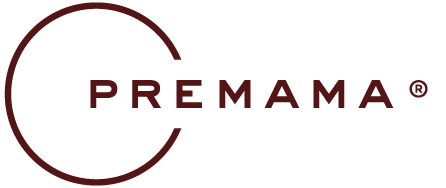Vitamins are an organic compound distinct from fats, carbohydrates, and proteins that are essential for supporting normal physiologic function (e.g., growth, reproduction, etc). Even with a healthy diet, you might fall short on key nutrients. During pregnancy, the body may require higher levels of vitamins to support fetal growth. Most prenatal vitamins are a blend of different vitamins and minerals to supplement your daily nutrition.*
When is the best time to start taking a prenatal vitamin? Much earlier than you think! If you're wondering when to start prenatals, you might be surprised. The ideal time to start a prenatal supplement is actually 3 months prior to conception.
Table of Contents:
- Reasons You Need a Prenatal Vitamin Before Trying to Conceive
- Do’s and Don’ts to Keep in Mind
Reasons You Need a Prenatal Vitamin Before Trying to Conceive
Here’s why you should start taking prenatal multivitamins before pregnancy:
- Your eggs develop 90 days before they are released, and healthy eggs are key to a healthy pregnancy. It’s important that your body has quality nutrients to pull from during this phase.
- Virtually no one gets a nutritionally perfect diet every day. A prenatal vitamin when trying to conceive is a good backup in case you’re not reaching your optimal daily intake of pre-pregnancy nutrients.
- Folate, a B vitamin that is naturally present in many foods, supports the earliest, most critical stages of fetal development. The baby’s neural tube (its brain and spine) develop within the first month of pregnancy, sometimes before you even know you’re pregnant. By the time you get that first positive test, you should already be regularly consuming folate. MTH Folate is a highly bioavailable form and is what we use in our prenatals.*
- Prenatal Vitamins may ensure adequate iron stores. Women who are pregnant need twice the amount of iron. The iron in prenatal vitamins makes hemoglobin, the oxygen-carrying component of red blood cells. This keeps oxygen flowing to your body’s tissues and organs.*
- Some of us don’t get enough Vitamin D, especially during the winter season. You need Vitamin D to grow your baby’s bones and keep yours strong.*
As you can see, there are many benefits of prenatal vitamins before pregnancy!
Do’s and Don’ts to Keep in Mind
Not all prenatal vitamins are created equal and deciding which is best for you can be difficult. With so many options on the market, it can be confusing figuring out how to choose a prenatal vitamin. Here are some prenatal dos and don'ts to keep in mind while narrowing down your search:
DON’T overdo it; you can have too much of a good thing with vitamins
Having too many vitamins can be toxic. Excess calcium, vitamin A, vitamin D, and iron can be damaging and in extreme cases, even fatal. On the other hand, vitamin deficiency is linked to adverse outcomes. Only take supplements from brands that test potency.
So, how do you know how much of a vitamin you should be taking? This table shows the recommended and safe upper limits for vitamin intake during pregnancy.
The good news is that it is rare to exceed vitamin tolerance from diet or one multivitamin (or prenatal vitamin). However, things become problematic if you are using more than one vitamin supplement or taking more than one supplement per day.
Do know where your vitamins come from and how they work
Most prenatal vitamins are categorized as dietary supplements, they are subject to a different kind of FDA oversight. The FDA doesn't formally license dietary supplement products, so when you are deciding where to get your supplements, make sure you purchase them from a reputable company that follows strict Good Manufacturing Practices regulations and guidelines. This means implementing strong testing protocols to ensure a safe, effective product to give you and your baby the best nutrition. These regulations include evaluating their products for purity and potency to ensure claims made on the supplement panel is actually in what is in the daily dose.
Do understand your Supplement Facts
Choose a prenatal vitamin that includes the following:
- Folate
- Iron
- Vitamin D
Not all forms of a nutrient are the same. For example, vitamin D supplements come as either vitamin D2 or vitamin D3. The main difference in understanding ingredients comes from where they are sourced and their bio availability - the degree and rate at which a vitamin is absorbed and can be used. Vitamins and minerals can interact in complex ways. For example, vitamin C and iron are “team players.” Similarly, vitamin D helps with the absorption of calcium. Other nutrients, such as zinc and iron, can act against each other.
We may be biased, but we love our easy to swallow Prenatal Capsules. They’re an innovative capsule within a capsule. Potentially stomach-upsetting ingredients, such as Folate and Iron, are in the small inner capsule . Meanwhile, liquid ingredients such as DHA, are in the outer capsule .
You know what that means: only one small capsule to take daily!




